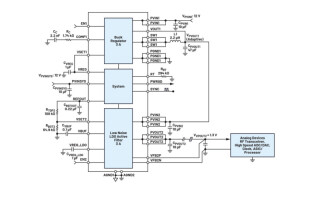Assistant vs Alexa: 8 things not discussed (enough)
October 13, 2016
Blog

I watched Sundar and Rick and the team at Google announce all the great new products from Google. I've read a few reviews and comparisons with Alexa/A...
I watched Sundar and Rick and the team at Google announce all the great new products from Google. I’ve read a few reviews and comparisons with Alexa/Assistant and Echo/Home, but it struck me that there’s quite an overlap in the reports I’m reading and some of the more interesting things aren’t being discussed. Here are a few of them, roughly in increasing order of importance:
- John Denver. Did anybody notice that the Google Home advertisement using John Denver’s Country Road song? Really? Couldn’t they have found something better? Country Roads didn’t make PlayBuzz’s list of the 15 best “home” songs or Jambase’s top 10 Home Songs Couldn’t someone have Googled “best home songs” to find something better?
- Siri and Cortana. With all the buzz about Amazon vs. Google, I’m wondering what’s up with Siri and Cortana? Didn’t see much commentary on that.
- AI acquisitions. Anybody notice that Google acquired API.ai? API.ai always claimed to have the highest rated voice assistant in the playstore. They called it “Assistant.” Hm. Samsung just acquired VIV – that’s Adam, Dag, Marco, and company that were behind the original Siri. Samsung has known for a while that they couldn’t trust Google and they always wanted to keep a distance.
- Assistant is a philosophical change. Google’s original positioning for its voice services were that Siri and Cortana could be personal assistants, but Google was just about getting to the information fast, not about personalities or conversations. The name “assistant” implies this might be changing.
- Google: a marketing company? Seems like Google used to pride itself of being void of marketing. They had engineers. Who needs marketing? This thinking came through loud and clear in the naming of their voice recognizer. Was it Google Voice, Google Now, OK Google? Nobody new. This historical lack of marketing and market focus was probably harmful. It would be fatal in an era of moving more heavily into hardware. That’s probably why they brought on Rick Osterloh, who understands hardware and marketing. Rick, did you approve that John Denver song?
- Data. Deep learning is all about data. Data that’s representative and labeled is the key. Google has been collecting and classifying all sorts of data for a very long time. Google will have a huge leg up on data for speech recognition, dialogs, pictures, video, searching, etc. Amazon is relatively new to the voice game, and it is at quite a disadvantage in the data game.
- Shopping. The point of all these assistants isn’t about making our lives better; it’s about getting our money. Google and Amazon are businesses with a profit motive, right? Google is very good at getting advertising dollars through search. Amazon is, among other things, very good at getting shoppers money (and they probably have a good amount of shopping data). If Amazon knows our buying habits and preferences and has the review system to know what’s best, then who wants ads? Just ship me what I need and if you get it wrong, let me return it hassle free. I don’t blame Google for trying to diversify. The ad model is under attack by Amazon through Alexa, Dash, Echo, Dot, Tap, etc.
- Personalization, privacy, embedded. Sundar talked a bit about personalization. He’s absolutely right that this is the direction assistants need to move (even if speaker verification isn’t built into the first Home units). Personalization occurs by collecting a lot of data about each individual user – what you sound like, how you say things, what music you listen to, what you control in your house, etc. Sundar didn’t talk much about privacy, but if you read user commentary on these home devices, the top issue by far relates to an invasion of privacy, which directly goes against personalization. The more privacy you give up, the more personalization you get. Unless… What if your data isn’t going to the cloud? What if it’s stored on your device in your home? Then privacy is at less risk, but the benefits of personalization can still exist. Maybe this is why Google briefly hit on the Embedded Assistant! Google gets it. More of the smarts need to move onto the device to ensure more privacy!




